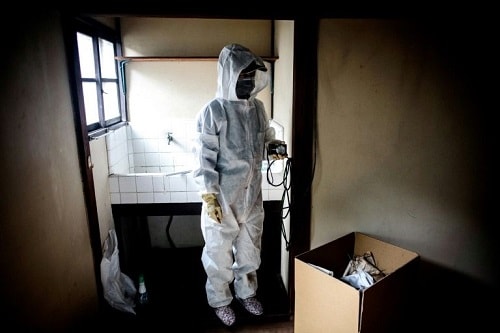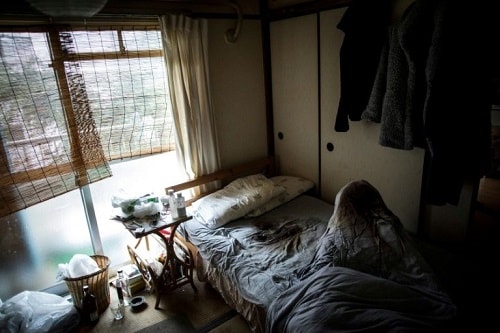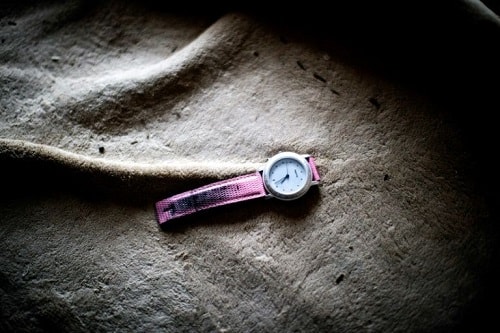Dying alone in the world's most crowded city
The smell of decomposition hit Hidemitsu Ohshima as he entered the small Tokyo apartment where a man had been dead for three weeks.
 |
Ohshima was alone in the house where someone died for several weeks. Photo: AFP. |
The man died in his 50s. In this city of tens of millions of people, no one knew about him, making the deceased the latest victim of "kodokushi" (dying alone), a growing trend in Japan, a country with an aging population, according to AFP.
Ohshima wore a white protective suit and gloves. He lifted the mat covering the body and found it covered with maggots.
"This is serious," he said. "You have to wear protective gear to protect yourself from bugs that can carry diseases."
Kodokushi is on the rise in Japan, where 27.7% of the population is over 65 and many middle-aged people are not looking for partners, choosing instead to live alone. Experts say Japan's cultural, social and demographic factors combine to complicate the problem.
Die alone
There are no accurate figures for the number of people who die alone, who go days or weeks without anyone knowing. Experts estimate it is about 30,000 a year.
Yoshinori Ishimi, who runs the Anshin Net service, which cleans up homes where people have died, believes the real figure is "two to three times that".
Japan has undergone profound cultural and economic changes in recent decades, but demographers say its social safety net has failed to keep pace, with the biggest challenge being caring for the elderly.
"In Japan, the family has long been the solid foundation for all forms of social support," said Katsuhiko Fujimori, a renowned expert on social welfare.
“But now things are changing, with more single people and smaller families,” said Fujimori, chief research fellow at Mizuho Information and Research Institute.
 |
The room has little furniture, apart from a stack of CDs and DVDs. Photo: AFP. |
Over the past 30 years, the proportion of single-parent households has doubled to 14.5% of the total population, with the majority of household heads being men in their 50s and women in their 80s or older. Marriage rates have fallen, as men fear their jobs are too precarious to marry and provide for their families, while more women work and do not need to marry to be provided for.
In Japan today, one in four 50-year-old men is unmarried. By 2030, that number is estimated to rise to 30%.
Isolation
The problem is exacerbated by the cultural tendency in Japan to turn to family rather than neighbors when in trouble. According to Fujimori, older Japanese people are reluctant to bother their neighbors, even for the smallest matter, leading to a lack of communication and isolation.
About 15% of elderly Japanese live alone, speaking to others only once a week, compared with 5% in Sweden, 6% in the US and 8% in Germany. Their children also live far away, or lack the resources to help in tough economic times.
Fujimori supports raising taxes to provide better social security for the elderly, financial support for families in need, and allowing older people to return to work.
"If the family cannot play its role properly, society must create a framework that meets that need," Fujimori said. "Otherwise, more people will die alone."
No photos, no letters
Aside from the distress of relatives of the deceased when they realize their loved one has been dead alone for days in their home, another practical factor is that cases like this cause house prices to drop.
Cleaning company boss Ishimi says Japan needs to educate young people about the issue,
"Who wants to die alone? Society as a whole needs to think about this issue," Ishimi said.
Back at their Tokyo apartment, Ohshima and his colleagues closed the windows to prevent the smell from spreading into the densely populated area.
 |
A clock, one of the valuable items in the deceased's apartment. Photo: AFP. |
The room was filled with signs of a music and film lover who lived a simple life, with CDs and DVDs everywhere, but little else. There were no photos or letters in the house.
Most of them are thrown away, but Ohshima and his two colleagues keep valuable personal belongings in case the deceased's relatives come forward to claim them.
"The police are still looking for his family," Ohshima said. "But so far there has been no news."
According to VNE
| RELATED NEWS |
|---|
